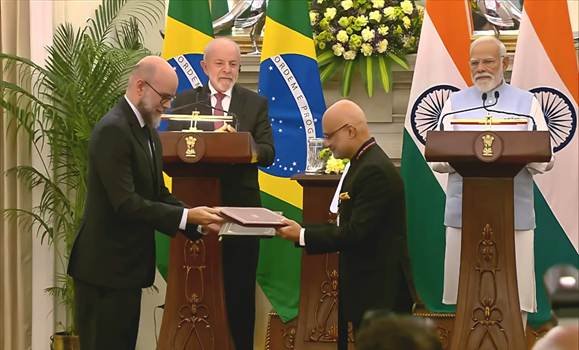Zero duty on Ferro-Nickel for stainless-steel industry
A comprehensive global strategy will position India as a leader in the steel industry, capable of meeting domestic needs while also becoming a significant exporter, says the Ministry of Steel.
As such, the development of a global strategy for India’s steel sector is crucial for enhancing its competitiveness and sustainability in the international market, the Ministry said on 30 Dec in a year-end review of the industry https://www.makeinindia.com/home/.
“Fostering partnerships with global players and participating in international forums can help India align its standards with global best practices https://fieo.org/.”
Accordingly, a Working Group has been formed to formulate India’s Steel Global Outlook Strategy with focus on the four strategic areas for collaboration viz. Raw Materials, Investments, Technologies, and Steel Exports https://steelworld.com/.
After extensive consultations with the stakeholders, a Strategy Paper will be formulated identifying focused areas of cooperation and action plan for priority countries, it added.
Government as a facilitator has taken the following measures to create a conducive policy environment for increasing production and consumption of steel in the country.
It is implementing Domestically Manufactured Iron & Steel Products (DMI&SP) policy for promoting ‘Make in India’ steel for Government procurement.
It is reducing the Basic Customs Duty (BCD) on Ferro Nickel, a raw material to zero from 2.5%, making it duty free and extension of duty exemption on ferrous scrap up to 31 Mar 2026, in the Budget 2024.
Ferro-Nickel is an important raw material for stainless steel production. Reduction of BCD on Ferro-Nickel will help the domestic stainless-steel industry, who are forced to import Ferro-Nickel due to its non-availability in the country.
Scrap recycling facilitates decarbonization of steel sector. India’s domestic availability of scrap is limited because of low consumption of steel in the past. Continuation of zero BCD on ferrous scrap would also make steel-producing units, particularly in the secondary sector, more competitive.
Steel Import Monitoring System (SIMS) 2.0 revamping for more effective monitoring of imports to address the concerns of domestic steel industry. The data submitted by importers on the SIMS portal is compiled and published on the Ministry of Steel website on fortnightly basis.
SIMS has been revamped with the launch of new SIMS portal with effect from 25 July 2024 for more effective monitoring of imports. Revamped SIMS would provide more detailed information regarding Standards and Grades of Steel being imported.
It will facilitate in taking appropriate policy measures to address the concerns of domestic steel industry due to any surge in import of steel. Ministry is also in the process of integrating SIMS with ICEGATE portal of CBIC. Impact of new SIMS portal can be analysed after a period of one year or so.
There is sufficient reserve of iron ore and non-coking coal in the country to meet the current demand/consumption by domestic steel industry. However, the coking coal is imported as the supply of high-quality coal, coking coal (low-ash coal) in the country is limited as compared to the demand which is primarily used by Integrated Steel Producers.
Steel CPSEs has been procuring coking coal from a diversified group of countries mainly Australia, United States, Russia, Indonesia, Mozambique etc.
Since, most of the coking coal produced domestically in the country had a very high ash content making it redundant in the manufacture of steel, it has led to the import of 51.20 MMT (Million Metric Tonne) in 2020-21, 57.16 MMT in 2021-22, 56.05 MMT in 2022-23, 58.12 MMT in 2023-24 coking coal and 30.19 MMT in 2024-25 for the period Apr’24 – Sep’24. Major portion of this import is from Australia.
Further, A MoU was signed on 14 Oct 2021 between the Ministry of Steel, Government of India, and the Ministry of Energy, Russian Federation, on cooperation in coking coal used in steel making. The import of coking coal from Russia has been 1.506 MMT in FY 2021-22, 4.481 MMT in FY 2022-23, 5.256 MMT in FY 2023-24 and approx 4.034 MT in FY 2024-25(till Sep’24).
In FY 2024-25 (till October’24), SAIL’s total import of coking coal from Russia is approx. 545,000 MT while NSL has imported about 78,520 MT. fiinews.com










